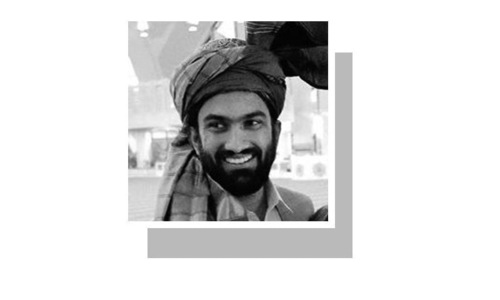ISLAMABAD: Even on International Women’s Day, women lawmakers from the opposition were kept from raising the matter of discrimination in the award of development funds to those elected on reserved seats on the floor of the National Assembly.
After the conclusion of question hour on Wednesday, Pakistan Peoples Party’s (PPP) Dr Nafisa Shah was not allowed to introduce a privilege motion on the subject, which has been in the works since the previous sitting of the lower house and was signed by nearly the entire opposition.
Deputy Speaker Murtaza Javed Abbasi insisted on proceeding with mundane house business, which included the introduction of two constitutional amendment bills, despite an earlier commitment from Speaker Sardar Ayaz Sadiq to allow women ample time to speak their minds.
Mr Abbasi’s refusal to allow Dr Shah to introduce her privilege motion ahead of other business prompted an opposition walkout and the contingent then converged on the dais outside Parliament House to air their grievances.
Meanwhile, the deputy speaker struggled to keep the house in order after a lack of quorum was pointed out by PPP’s Abdul Sattar Bachani. Upon realising that they didn’t have the required numbers, Mr Abbasi suspended proceedings, allowing the treasury to call in reinforcements.
By the time the session resumed 45 minutes later, the government benches were brimming and the opposition had also been cajoled back into the house. Dr Nafisa Shah, however, was not among those who returned.
Opposition walks out after Nafisa Shah not allowed to table privilege motion on development funds for women on reserved seats
She told Dawn after the session that she did not agree with the larger decision to return, stressing that women needed assurances from the speaker that lawmakers on reserved seats wouldn’t be subjected to “parliamentary apartheid” in the house.
On the floor of the house, PPP’s Azra Fazal Pechuho summed up the dilemma of women lawmakers in the National Assembly.
“Pakistan still is a patriarchal society; women in the public sphere are still facing a lot of problems and we have to change men’s mindsets. They have to give us due respect and regard and acknowledge our efforts.”
She said women led the assembly in terms of contributions to legislative business and attendance, but regretted how those elected on reserved seats had yet to receive their rightful share in MNAs’ development funds under the current government.
Paying tribute to historic women’s movements, such as the suffragettes who secured the right to vote for women worldwide, and the Women’s Action Forum that stood up to the “tyranny” of the Zia years, she regretted that women did not have equal rights, even in parliament.
“If we do not speak for our own rights in parliament, we cannot stand for the rights of [Pakistani] women outside parliament,” she concluded.
From the treasury benches, Tahira Aurangzeb, Tahira Bukhari and Shaza Fatima Khawaja only had more platitudes to offer. There was a palpable sense of apathy — both on the house floor and in the press galleries — while women lawmakers were speaking.
Most government members read from prepared remarks, rendering their speeches devoid of the emotional appeal that comes with impromptu speaking.
Apart from the Pakistan Tehreek-i-Insaf’s (PTI) Nafeesa Inayatullah Khattak and Jamaat-i-Islami’s Aisha Syed, no one forcefully made a case for equal rights for women.
Despite being the forum that had enacted historic laws for women’s protection, Ms Khattak asked “what protection do women who work in parliament have against harassment at the workplace?”
She recalled how working women were not being given the maternity leave they were entitled to, in spite of the passage of laws ensuring this right.
In a passionate speech, Ms Syed recited verses from the Holy Quran and recalled that female infanticide had been strictly prohibited in Islam.
“Why can’t we raise a voice for the woman who dies giving birth in Adiala Jail, or the one who is killed by her cousin for demanding her share of inheritance, or the one who is burned alive for not possessing sufficient dowry, or the one who is sentenced to die by a jirga?”
“If we are not given equal rights in parliament, we cannot be the voice of the millions of Pakistani women who we represent,” Ms Syed concluded, alluding to the issue of development funds.
“Laws are being made to support women, but we need to keep a check on their implementation,” said PML-N’s Shaista Pervaiz, who heads the Women’s Parliamentary Caucus.
“When our votes are counted, when we run the business of the house and fill the quorum requirements, then we need a share in everything. No matter which side of the house we may be on, we speak with one voice,” she said, calling on her male colleagues to support them in their struggle.
But for all the verbosity on display, when time came to pass a resolution in connection with International Women’s Day, only 25 members were left in what had been a packed house just hours ago. In the end, only 15 women and 10 men voted on a resolution, which was signed by at least 15 lawmakers.
In stark contrast, when debate on International Women’s Day was initiated in the upper house on Wednesday, Senate Chairman Raza Rabbani abdicated his seat, allowing Awami National Party’s Sitara Ayaz to chair proceedings.
Published in Dawn, March 9th, 2017














































